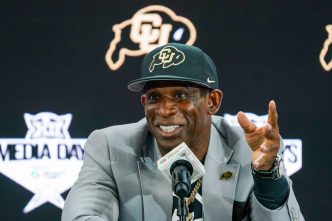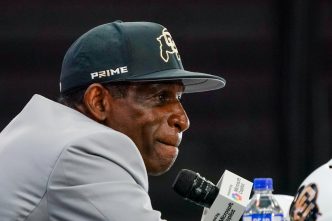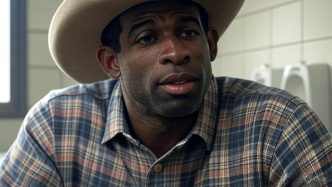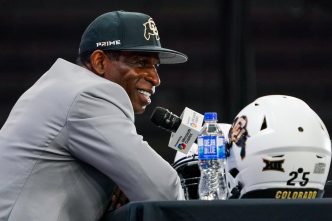College football is undergoing a seismic shift. Once governed by handshakes and quiet agreements over dinner, the sport has now entered an era where financial incentives and personal branding dominate the recruiting landscape.
The introduction of Name, Image, and Likeness rights has upended traditional methods, offering athletes unprecedented opportunities – while simultaneously presenting new challenges for teams and coaches.
Amid this evolving environment, Georgia head coach Kirby Smart has voiced strong concerns about the potential pitfalls of NIL.
While acknowledging the benefits for athletes, he warns of the unintended consequences that could threaten the integrity of the game.
“I think everybody’s gotta take a big pause right now, and take a deep breath,” Smart said. “What’s going on with basketball right now is crazy, and we don’t know everything that’s gonna come out with April 7th (potential settlement reached), which might be the settlement date, when we might get a lot more information. Everybody’s on pins and needles because we don’t know exactly what’s gonna come out of this.
“What I do know is that we’re gonna continue to recruit players that love football, passionate about football. and don’t put money as the number one answer. I’ve never met a really good player that it’s all they care about. So, the 105 number, the NIL number, what’s the cap number.”
Smart’s concerns stem from a growing trend where financial incentives influence recruiting decisions, sometimes overshadowing factors like player development and team culture.
For Smart, the risk is clear: without proper oversight, NIL could create instability within programs and hurt the players themselves.
“There’s people reaching out to have a Zoom call, and present all the players they represent that are on teams, including our teams,” Smart added. “And they want to invite people to the zooms so they can watch and see who’s going into the portal, or shopping who’s in the portal, before the portal.
“‘Do you want to get on a Zoom and look at all these players?’, well what if some of them are mine? It could be one of the most legendary moments in all of college sports with what’s coming up with this ruling.
“And how people are going to try and manipulate the cap, when all we’re trying to do is to make for competitive balance. It’s really unfortunate that I don’t know if a competitive balance is gonna come out of it.”
With NIL and the transfer portal completely reshaping college athletics, Smart has joined a growing chorus of voices calling for clearer guidelines.
“I don’t know if the kids win in this current model that we have, if they win longterm. Like longterm, when we have to cut sports and cut other things. Are the kids gonna be the winners of this? I don’t know,” Smart continued.
“College sports has been around a long time and given many an opportunity. By all means, I want these kids to make money, but what’s going on right now is not good for anybody.”
Smart’s words echo a broader sentiment among coaches and administrators who worry that, without proper regulations, NIL could create an environment where the richest programs dominate solely through financial muscle.
As the sport wrestles with these challenges, the conversation around NIL continues to evolve. The need for balance – between empowering players and preserving the competitive nature of college football – remains a pressing concern.
“There’s a lot of people doing not illegal things, but must manipulate money things to move this, move that, so I can free up this. And what’s gonna happen is there’s probably gonna be a bubble or spike. Agents are trying to take advantage of that every way they can. They wanna get all they can for their client,” Smart added.
“But at the end of the day, it may backfire because there’s going to be a correction in the market at some point when the cap hits, if the cap is truly what the House settlement wants it to be.
“If there’s truly a cap, and you continue to try and frontload and pay out people, like what’s going on in basketball and football, with people trying to beat a date. What’s gonna happen when those people expect the same money next year, and it’s not there because you’re in a cap?”
For now, Georgia and the rest of the college football world must navigate this new era with caution, learning from the challenges at hand while searching for a sustainable path forward.
What are your thoughts on the current mess we find ourselves in? … What’s the best solution for the problem???







